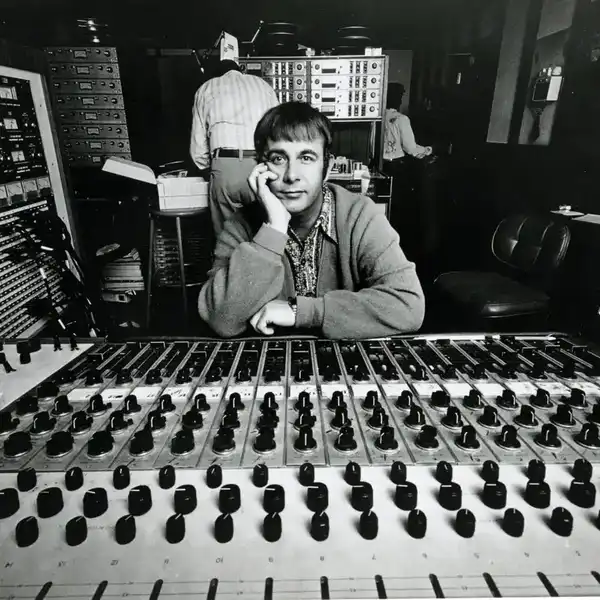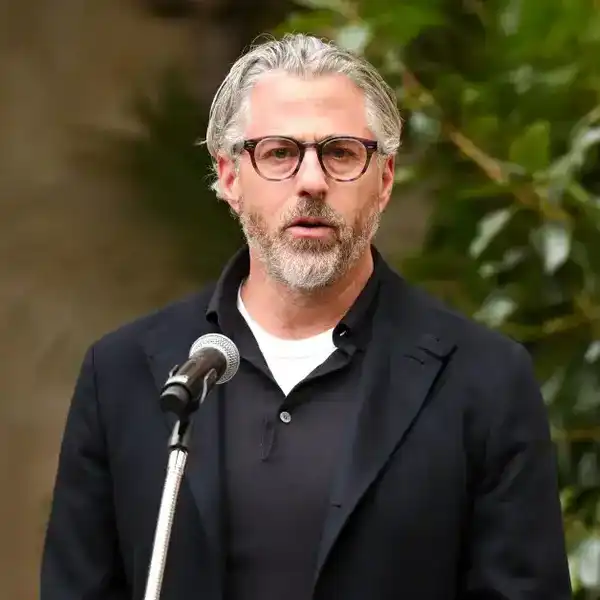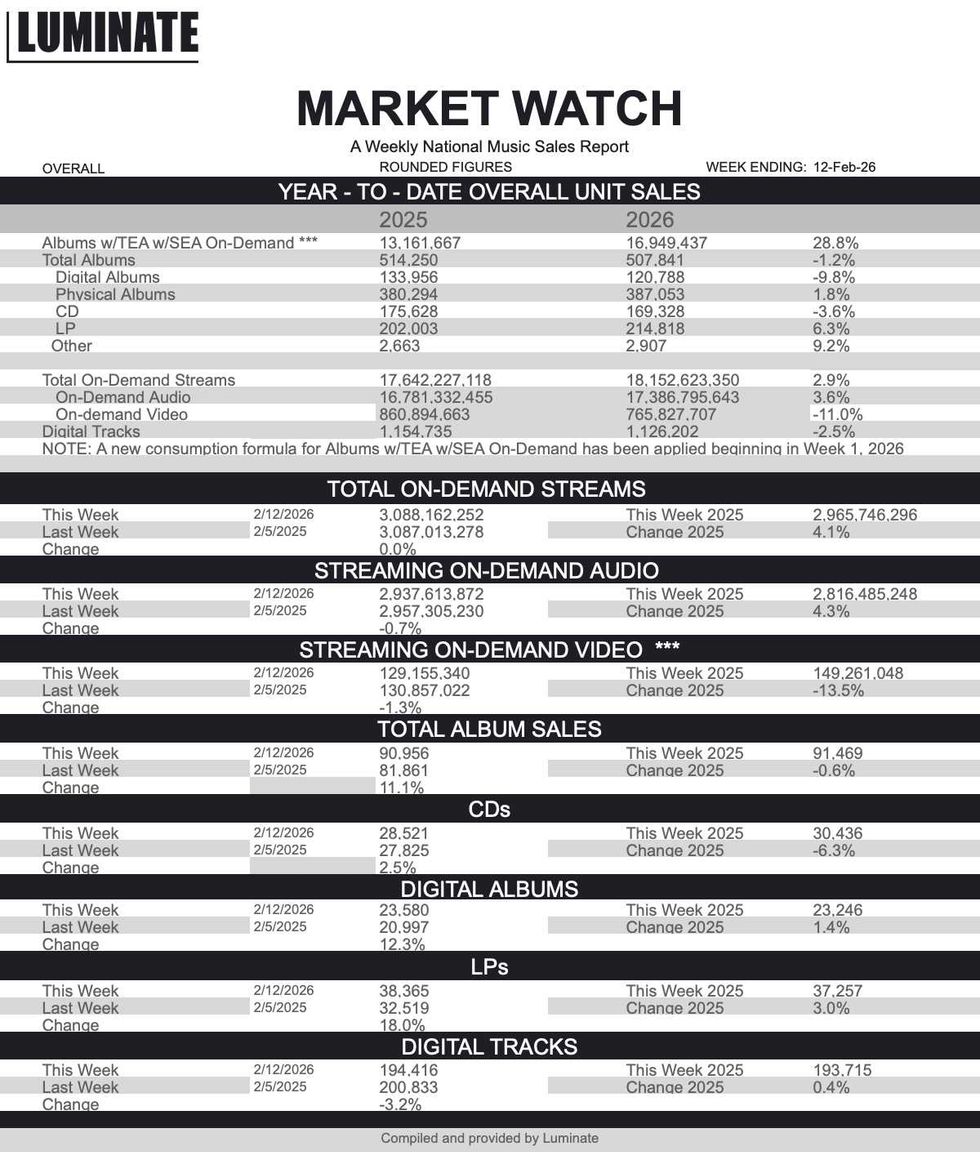
By David Farrell
And our readers write
Kari Johnson responds to Friday's column in which Danko Jones calls out Indie 88 for a lack of diversity in its programming.
"I'm surprised at the complaints against Indie 88. Diversity in staff is one thing, and that may be a warranted problem to fix. However, it's been my experience that attending a music meeting and discussing adds is usually the most UN-racist activity one could ever be in. There's usually a file download played which has no picture. Or, in the 'old' days, a CD, with just a plain printed title. If it's an established act you would definitely have an idea of who they were and what they looked like if that was going to have a bearing on how you voted for an add. But for a new band or artist, it's typically a 100% blind audition where you have no idea of anything except whether the song is good or bad. There's no visible way to tell who's white, black, indigenous, male/female, red, orange, or any other colour.
"Many times you don't even know if you're judging a whole band or a single person with an odd non-person name.
"Perhaps if someone's song doesn't get an add, the reason isn't so sinister. Maybe it's just not good."
Corus reports a $752M quarterly loss
Corus Entertainment, the owner of the Global TV network and 39 Canadian radio stations, reported a $752-million loss in the three months ending on May 31.
That was due to a $786.8-million non-cash charge it placed on its operating statement for "broadcast licences and goodwill impairment". That amounted to $3.69 per share.
Revenues fell by 24 percent to $349 million compared to the March to May period in 2019.
Radio revenues plunged 52 percent to $17.6 million, whereas TV revenues fell 21.4 percent to $331.2 million. – Charlie Smith, The Georgia Straight
Elon Musk wants to provide rural Canadians with fast satellite internet service
Billionaire entrepreneur and Tesla electric car impresario Elon Musk recently signalled to telecommunications regulators that he intends to provide super-fast internet service to rural Canadians via satellite.
Musk’s application with the Canadian Radio-television and Telecommunications Commission, lodged in May via his Hawthorne, Calif.-based company Space Exploration Technologies, has mustered an unusual groundswell of public support. – Peter Nowak, The Star
Canadaland workers unionize
Workers at Canadaland, a Canadian podcast network and news organization, have signed union cards and filed for union certification.
In a news release, issued Thursday, CWA Canada announced it had “filed today with the Canada Industrial Relations Board after all non-management workers signed union cards.”
Canadaland publisher Jesse Brown told PressProgress he welcomed the news and said he was willing to voluntarily recognize the union.
Postmedia print room workers courted for union certification
The Canadian Media Guild has applied to be certified as the union representative of pressroom workers at Postmedia's Toronto printing plant.
The union, which is a local of CWA Canada, says it filed its application with the Ontario Labour Relations Board on Monday after a majority of the plant's staff signed union cards. – The Canadian Press
Pandemic playing into Big Tech’s bid to become bigger still
Even with the global economy reeling from a pandemic-induced recession and dozens of businesses filing for bankruptcy, tech’s largest companies — still wildly profitable and flush with billions of dollars from years of corporate dominance — are deliberately laying the groundwork for a future where they will be bigger and more powerful than ever.
Amazon, Apple, Facebook, Google and Microsoft are aggressively placing new bets as the coronavirus pandemic has made them near-essential services, with people turning to them to shop online, entertain themselves and stay in touch with loved ones. The skyrocketing use has given the companies new fuel to invest as other industries retrench. – Mike Isaac, The New York Times
Zuckerberg loses $7B as ad boycott kicks in
Mark Zuckerberg just became US$7.2B poorer after a flurry of companies pulled advertising from Facebook Inc.’s network.
The share-price drop eliminated $56B from Facebook’s market value and pushed Zuckerberg’s net worth down to $82.3B, according to the Bloomberg Billionaires Index. That moved the Facebook chief executive officer down one notch to fourth place, overtaken by Louis Vuitton boss Bernard Arnault, who was elevated to one of the world’s three richest people along with Jeff Bezos and Bill Gates.
Top Facebook outrages of 2019
2019 was the year Facebook cemented its position as the world's most despised company. Here are 29 ways the "move fast and break things" jerk-offs soiled our lives in 2019. Pick your top 10, stick 'em in an old sock and light 'em on fire.
1. January: It was discovered that Facebook-owned WhatsApp was being used to spread illegal child pornography.
2. January: Researcher Aaron Greenspan, former running mate of Mark Zuckerberg at Harvard, said that Facebook's claim of reaching 2 billion people is a lie and said Zuckerberg "may be the greatest con man in history."
3. January: Zuckerberg writes a Wall Street Journal op-ed defending Facebook and gets roundly roasted for it.
4. January: British health minister threatens to close down social media after a 14-year-old girl commits suicide after seeing disturbing content on Facebook-owned Instagram.
5. February: It was discovered that Facebook was paying kids as young as 13 to install spyware on their phones.
6. February: A committee of Parliament in England denounced Facebook as "digital gangsters" and said, "Democracy is at risk from the malicious and relentless targeting of citizens with disinformation and personalised ‘dark adverts'..."
7. February: The Wall Street Journal discovered that people were entering private information into apps and, unknown to them, the apps were feeding the info to Facebook.
8. March: Federal investigators summoned a grand jury to investigate criminal implications of Facebook's agreement with over 100 tech companies to provide them with information about 100s of millions of FB users without their knowledge or consent.
9. March: Facebook leaves hundreds of millions of user passwords unencrypted.
10. March: The U.S. Department of Housing and Urban Development (HUD) sued Facebook for allowing "advertisers to exclude people from seeing housing ads based on their race, religion, background and other characteristics"
11. March: In the wake of the massacre of 50 people in New Zealand which was live-streamed on FB, the Prime Minister of Australia threatened to jail social media execs.
12: April: It was discovered that a Mexican company had stored over 500 million Facebook records in plain sight on the Amazon cloud for anyone to access.
13: April: Bloomberg reported that almost 400,000 crooks have been using Facebook for as long as eight years as a marketplace to buy and sell criminal materials.
14: April: The Daily Beast reported that "Child Brides in Africa Are Advertised on Facebook and Sold to Old Men."
15. April: The New York Times reported that "Regulators on four continents are preparing for a long-awaited showdown with Facebook..."
16. May: In an article in the NY Times, Chris Hughes, one of the founders of Facebook, called for its breakup.
17: July: FTC fines Facebook $5 billion for Cambridge Analytica scandal.
18: August: Netflix airs "The Great Hack" about the Facebook/Cambridge Analytica scandal. PBS airs "The Facebook Dilemma," savaging the company and claiming it has blood on its hands.
19: September: TechCrunch found another unprotected database online which contained the phone numbers and user IDs of 419 million Facebook users.
20: September: The BBC reported that a study by Privacy International determined that "Intimate data, including when people have had sex, is being shared with Facebook."
21: September: Massachusetts attorney general found that Facebook lied when they said they suspended 400 apps to remediate after the Cambridge Analytica scandal. In fact, they suspended 69,000 questionable apps.
22: September: A study conducted by researchers at Oxford University found that "Facebook remains the No. 1 social network for disinformation...Organized propaganda campaigns were found on the platform in 56 countries."
23: October: Facebook agreed to pay a group of advertisers $40 million to settle a suit which claimed that Facebook had inflated its video metrics by as much as 900%.
24: October: Zuckerberg gave a speech at Georgetown University defending Facebook's policy of airing political advertising they know to be false.
25: October: BuzzFeed reported "How A Massive Facebook Scam Siphoned Millions Of Dollars From Unsuspecting Boomers."
26: October: P&G announced that they had built their own database of 1.5 billion people because they don't trust the numbers of Facebook or Google.
27: November: Aaron Sorkin, writer of the movie "The Social Network," savaged Zuckerberg's "free speech" hypocrisy in a NY Times op-ed.
28: December: CNET reported "more than 267 million Facebook user phone numbers, names and user IDs were exposed in a database that anyone could access online."
29: December: In response to an inquiry from two U.S. Senators, Facebook admitted it can track peoples' locations even if they opt-out of tracking. – Bob Hoffman, The Ad Contrarian


















